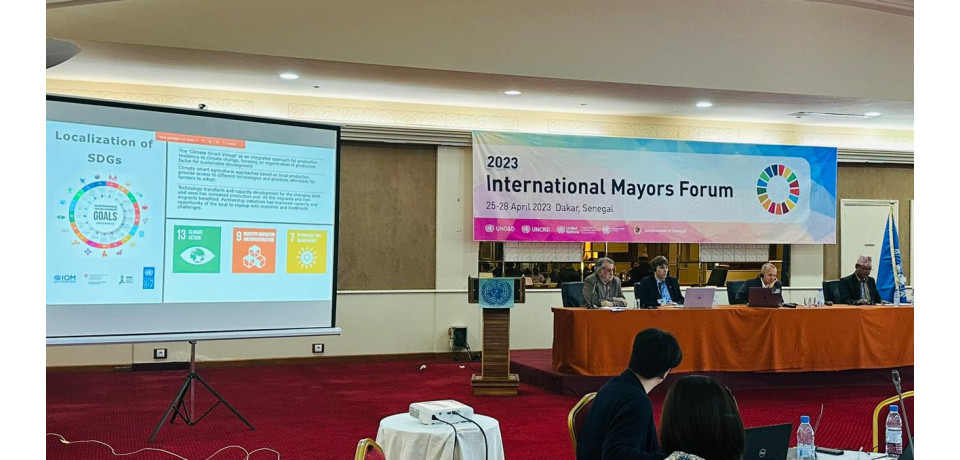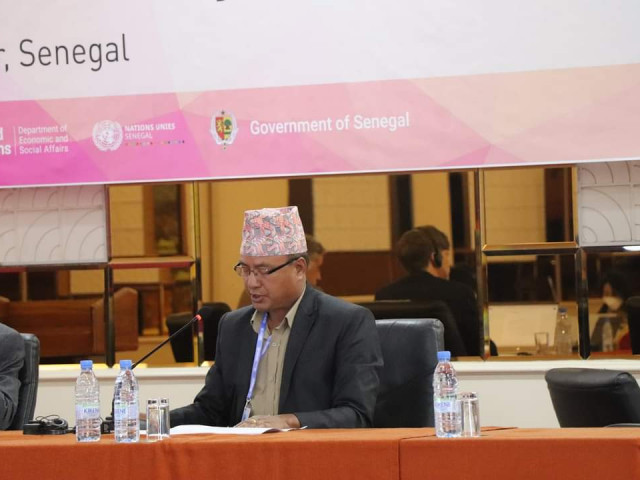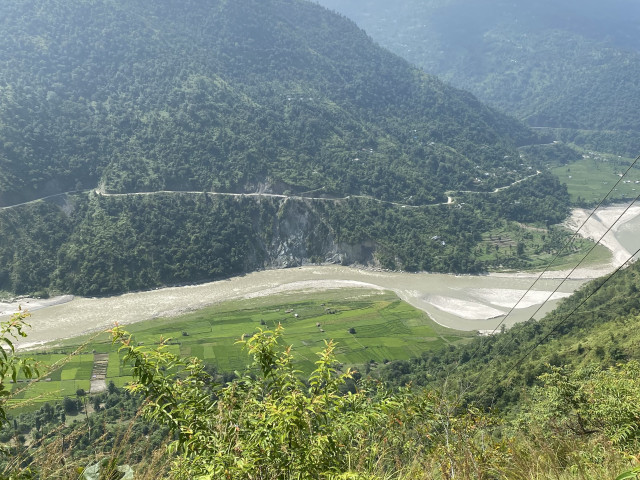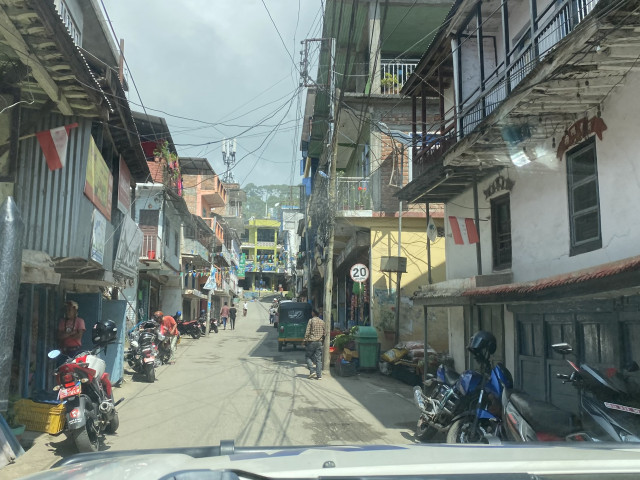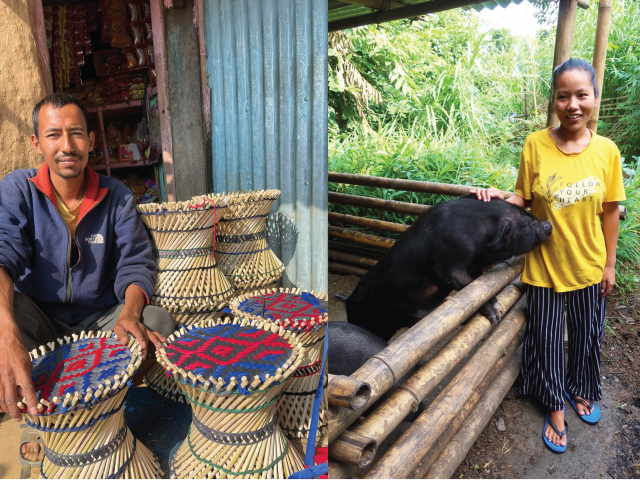Mayor from Nepal Brings Migration & Development to International Mayors Forum 2023
Related Sustainable Development Goals and Global Compact for Migration Objectives
The International Mayors' Forum 2022-2023 took place in Dakar, Senegal from 25 to 28 April. Organised by the United Nations Office for Sustainable Development (UNOSD), other UN agencies and local partners, it brought together mayors and other local and regional government leaders as well as international experts and other stakeholders. The forum was a unique opportunity for mayors to exchange on successes and challenges, policy options, initiatives and actions undertaken at the local level to support the implementation of the Sustainable Development Goals, in particular SDGs 6, 7, 9, 11 and 17.
Among the participants were 7 representatives of local governments from Nepal. For example, Mr. Kalanidhi Devkota, Executive Secretary of the Municipal Association of Nepal (MuAN) spoke about how best to achieve Goal 6 (clean water and sanitation) in cities. Meanwhile Mr. Chintan Tamang, Mayor of Dhankuta Municipality, showcased their local efforts to empower all community members, including returning migrants and families of migrants abroad.
During his speech, Mayor Tamang highlighted the concerted efforts made by the Dhankuta Municipality to overcome local challenges and achieve sustainable development. Municipal governments like Dhankuta are creating development solutions and policies that consider the impacts and opportunities of mobility and migration, contributing to the municipality’s growth and in turn supporting the achievement of the Sustainable Development Goals. Their objective is to create a model for other regions facing similar circumstances, showcasing the importance of community engagement, environmental preservation and inclusive growth.
Dhankuta and nearby Arjundhara municipality both participate in the M4SD Global Programme, supporting over 200 people (118 men, 95 women; 133 returning migrants, 55 people in vulnerable situations and 25 families of migrants abroad) to start or expand their small businesses through reintegration assistance, seed funding, entrepreneurship and financial literary training and psychosocial support. Businesses range from agricultural and animal husbandry (dragon fruit and avocado) to a tea shop, iron mongering and tool making. Global partnerships such as this are key to success.
This is just one of the wide-ranging activities happening in Dhankuta to advance local development. By highlighting interesting, locally-led and migrant-inclusive initiatives, local leaders in Nepal hope to inspire other municipalities and encourage further collaboration between local and international stakeholders for a more sustainable future. The attainment of the 2030 Agenda for Sustainable Development and the SDGs increasingly depends on the successful management of urban growth and sustainable and lasting solutions, which is why understanding and planning for future urban changes is key. With only 7 years to go until the deadline set by the 2030 Agenda is upon us, it looks likely that the ambitious goals the world set for itself under SDG 11 (sustainable cities and communities) will not be achieved. To get us back on track, it is crucial to learn from and leverage transformative solutions that leave no one behind, including migrants and displaced persons.
The International Mayors Forum served as a platform for mayors, policymakers, and experts to exchange experiences, ideas, and best practices. It provided an opportunity for municipalities around the world to learn from each other's successes and challenges, fostering collaboration and innovation to drive the in-depth transformation needed to accelerate the recovery from the COVID-19 pandemic and the full implementation of the 2030 Agenda for Sustainable Development at local and regional levels.
With thanks to Dhankuta Municipality, Office of the Municipal Executive, Koshi Province, Nepal for their insights into this event
